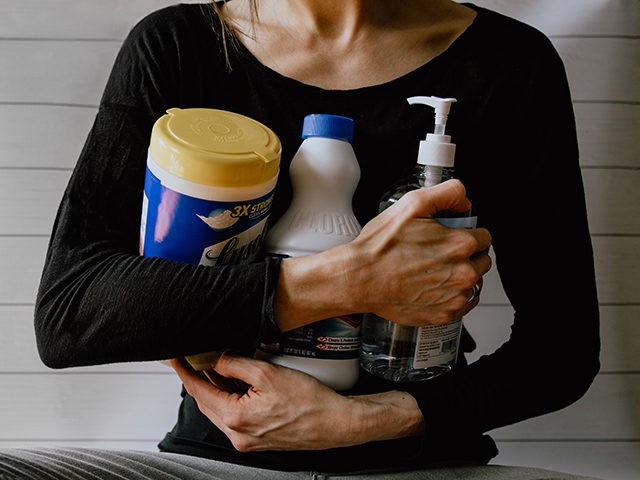WASHINGTON (AP) — The parent company of Lysol and another disinfectant warned Friday that its products should not be used as an internal treatment for the coronavirus after President Donald Trump wondered about the prospect during a White House briefing.
Trump noted Thursday that researchers were looking at the effects of disinfectants on the virus and wondered aloud if they could be injected into people, saying the virus “does a tremendous number on the lungs, so it would be interesting to check that.”
That prompted a strong warning from the maker of disinfectants Lysol and Dettol, which said it was issuing a statement to combat “recent speculation.”
“As a global leader in health and hygiene products, we must be clear that under no circumstance should our disinfectant products be administered into the human body (through injection, ingestion or any other route),” said the statement from Reckitt Benckiser.
Researchers are testing the effect of disinfectants on virus-laden saliva and respiratory fluids in the laboratory, said William Bryan, of the Department of Homeland Security. They kill the virus very quickly, he said.
“And is there a way we can do something like that, by injection inside or almost a cleaning,” Trump said. “Because you see it gets in the lungs and it does a tremendous number on the lungs. So it would be interesting to check that. So, that, you’re going to have to use medical doctors with. But it sounds — it sounds interesting to me.”
The president has often talked up prospects for new therapies and offered rosy timelines for the development of a vaccine as he encourages states to move to reopen their economies.
On Thursday, the White House also pitched “emerging” research on the benefits of sunlight and humidity in diminishing the threat of the coronavirus.
Past studies have not found good evidence that the warmer temperatures and higher humidity of spring and summer will help tamp down the spread of the virus.
But William Bryan of the Department of Homeland Security said at a White House briefing Thursday that there are “emerging results” from new research that suggest solar light has a powerful effect in killing the virus on surfaces and in the air. He said scientists have seen a similar effect from higher temperatures and humidity. A biocontainment lab in Maryland has been conducting testing on the virus since February, Bryan said.
“The virus is dying at a much more rapid pace just from exposure to higher temperatures and just from exposure to humidity,” Bryan said.
Trump was asked if it was dangerous to make people think they would be safe by going outside in the heat, considering that so many people have died in Florida.
“I hope people enjoy the sun. And if it has an impact, that’s great,” Trump replied, adding, “It’s just a suggestion from a brilliant lab by a very, very smart, perhaps brilliant man.”
“I’m here to present ideas, because we want ideas to get rid of this thing. And if heat is good, and if sunlight is good, that’s a great thing as far as I’m concerned,” the president said.
Bryan stressed that the emerging results of the light and heat studies do not replace social distancing recommendations.

COMMENTS
Please let us know if you're having issues with commenting.